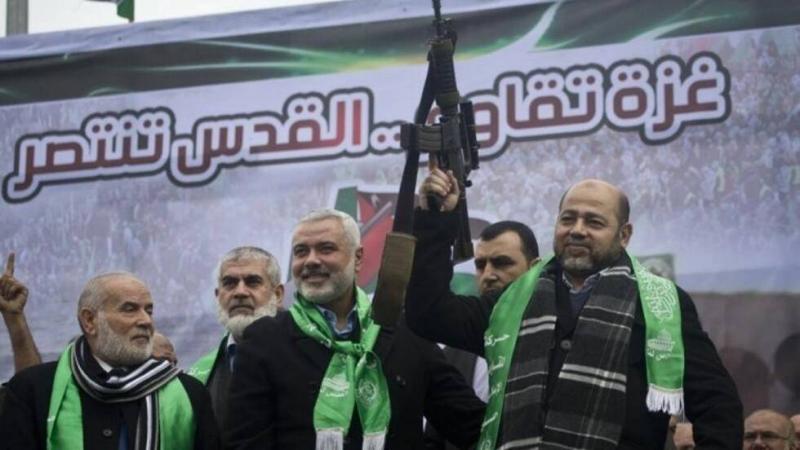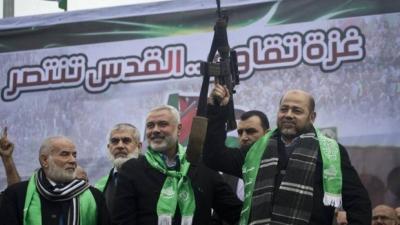The member of Hamas's political bureau, Mousa Abu Marzooq, recanted statements in which he implied that his movement was prepared to recognize Israel, asserting that Hamas does not acknowledge the legitimacy of the occupation. In an urgent statement distributed by Hamas, Abu Marzooq said, "There has been a misunderstanding of my media statements, and therefore, I confirm that the Hamas movement does not recognize the legitimacy of the Zionist occupation and does not accept giving up any right of our Palestinian people. We affirm that resistance will continue until liberation and return."
For decades, there has been a dispute over respecting principles and regional commitments between the Palestinian Liberation Organization (PLO) and Hamas, with the latter rejecting adherence to regional commitments, as this would entail recognizing Israel. The PLO recognized Israel in 1993 in its pursuit of establishing a state based on the 1967 borders. Hamas long rejected the idea of establishing a state on the 1967 borders but has shifted its rhetoric in recent years, stating it accepts this option but without recognizing Israel. Abu Marzooq confirmed that his movement seeks to establish a Palestinian state along the 1967 borders. According to him, "Israelis have rights, but not at the expense of others."
Abu Marzooq's retreat was anticipated, given that his original statement was the first of its kind from a Hamas official and undermined one of the fundamental principles the movement has upheld over time, which it has always considered an unforgivable betrayal.
However, did Abu Marzooq truly mean what he said? Observers believe that joining the PLO represents a lifeline for Hamas, particularly as Israel has destroyed Gaza and raises the slogan "the day after the war without Hamas," suggesting his remarks were perhaps a trial balloon. A source within Fatah told Asharq Al-Awsat that Hamas is accustomed to accepting something and then retracting it regarding the authority, elections, and a state along the 1967 borders as well as the organization. He added, "Fatah's position is clear and unchanged; we welcome everyone within the framework of the organization and its commitments."
Abu Marzooq's statements came hours after Ismail Haniyeh, the head of Hamas's political bureau, announced today (Thursday) that the movement is open to discussing any initiatives that would lead to a ceasefire in Gaza. Haniyeh added in a televised speech: "We are open to discussing any ideas or initiatives that would lead to stopping the aggression and open the door to restructuring the Palestinian house on the level of the West Bank and Gaza." The Hamas leader warned that "any bet on arrangements in Gaza or the Palestinian issue in general without Hamas and the resistance factions is an illusion and a mirage."
From Haniyeh's statements, it is understood that Hamas is heading towards internal reconciliation, which may include joining the PLO, the Palestinian representative body that the United States addresses as the legitimate authority to govern Gaza after the war. Hussein Al-Sheikh, a member of the PLO Executive Committee, had called on Hamas to recognize the PLO's program and engage in the realm of international legitimacy and international law to protect the Palestinian project. He added in an interview with Sky News: "Hamas has turned its back on all demands for consensus on a political program and a unified action mechanism, and today we are paying a high price for that." Al-Sheikh called for a comprehensive national dialogue among all segments of the Palestinian people after the war ends.
For decades, the two sides have differed, and a series of agreements has failed to alter reality. Hamas has refused to hand over the Gaza Strip to the authority or concede its governance, weaponry, or anything else, while the authority rejected integrating Hamas into the organization without genuine reconciliation. There have been disputes over everything related to the organization, such as representation ratio, elections, its structure, program, commitments, and reforms. Even previous wars did not change anything or bring the Palestinians closer to unity; will this devastating war, which has left nothing in Gaza for anyone to govern, alter the grim reality?




